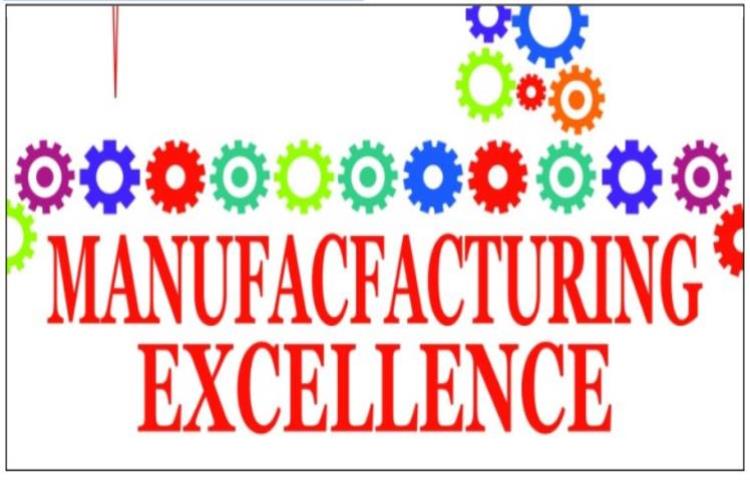In the dynamic landscape of modern industry, achieving manufacturing excellence isn’t merely a goal—it’s a prerequisite for sustained success. As market demands evolve and competition intensifies, businesses must continuously seek strategies that optimize efficiency, elevate quality, and foster innovation. Among the arsenal of tools available, Enterprise Resource Planning (ERP) solutions emerge as a cornerstone for driving manufacturing excellence. In this comprehensive exploration, we’ll uncover the strategies that harness the potential of ERP systems to propel manufacturing operations towards unparalleled success.
Understanding ERP Solutions
Before embarking on our journey through strategies, it’s imperative to comprehend the essence of ERP solutions. At its core, an ERP system serves as a comprehensive, integrated software platform designed to streamline and manage various critical business processes. These encompass a wide array of functions including production planning, inventory management, procurement, human resources, finance, and customer relationship management (CRM). By consolidating these disparate functions into a unified ecosystem, ERP solutions provide enterprises with unprecedented visibility and control over their operations, facilitating smarter decision-making and operational efficiency.
Strategies for Manufacturing Excellence
Streamlining Operations:
At the heart of ERP implementation lies the objective of streamlining operations. By systematically eliminating redundancies and automating manual tasks, ERP systems optimize workflows and resource allocation across the manufacturing spectrum. From intricacies of production scheduling to the minutiae of equipment maintenance, ERP software empowers organizations to enhance operational efficiency, minimize downtime, and uphold stringent delivery schedules, thereby fortifying their competitive edge in the market.
Enhancing Supply Chain Management:
A robust supply chain is the backbone of manufacturing excellence. ERP solutions play a pivotal role in facilitating seamless collaboration with suppliers, endowing enterprises with unparalleled visibility across the entire supply chain landscape. By orchestrating activities such as optimizing inventory levels, nurturing supplier relationships, and streamlining logistics, manufacturers can effectively minimize lead times, curtail operational costs, and fortify the resilience of their supply chain networks.
Improving Quality Control:
Quality is non-negotiable in the pursuit of manufacturing excellence. ERP systems serve as indispensable tools in bolstering quality control measures by furnishing real-time insights into production processes and product performance. Through meticulous data capture and analysis throughout the manufacturing lifecycle, enterprises can swiftly identify potential quality deviations, institute corrective measures, and perpetually refine their products to adhere to the most stringent quality benchmarks.
Enabling Data-Driven Decision-Making:
In an era characterized by data proliferation, informed decision-making serves as the linchpin of manufacturing excellence. ERP solutions emerge as a veritable treasure trove of business intelligence, furnishing stakeholders with comprehensive reports and analytics provided by business analyst to inform their strategic endeavors. By vigilantly monitoring key performance indicators (KPIs) such as production output, inventory levels, and customer satisfaction metrics, decision-makers can discern emerging trends, preempt operational bottlenecks, and orchestrate proactive strategies to foster continuous improvement.
Empowering Employee Collaboration:
Collaboration lies at the crux of innovation and operational excellence. ERP systems serve as conduits for fostering seamless communication and collaboration across diverse organizational hierarchies. Whether it’s facilitating real-time information sharing or coordinating tasks across disparate departments, ERP platforms empower employees at all levels to harness collective intelligence, foster alignment, and engender a culture of collaborative problem-solving.
Ensuring Regulatory Compliance:
Compliance with regulatory standards is imperative for maintaining the integrity of manufacturing operations. ERP solutions play an instrumental role in navigating the labyrinth of regulatory requirements by enforcing standardized processes, meticulously tracking compliance metrics, and maintaining comprehensive audit trails. By automating compliance-related tasks and documentation, enterprises can mitigate the risk of non-compliance penalties and safeguard their reputation in the market.
Facilitating Continuous Improvement:
In the pursuit of manufacturing excellence, stagnation is the antithesis of progress. ERP systems serve as catalysts for fostering a culture of continuous improvement by facilitating data-driven root cause analysis, benchmarking performance against industry standards, and instituting best practices across the organization. By nurturing a dynamic environment of continuous learning and adaptation, enterprises can not only stay ahead of the curve but also cement their position as industry leaders in an ever-evolving marketplace.
Conclusion
In conclusion, ERP solutions emerge as indispensable allies in the quest for manufacturing excellence in today’s fiercely competitive landscape. By embracing strategies that leverage the transformative power of ERP systems—ranging from streamlining operations and enhancing supply chain management to bolstering quality control measures and fostering a culture of continuous improvement—enterprises can navigate the complexities of modern manufacturing with unparalleled efficiency and agility. As the dynamics of the industry continue to evolve, harnessing the full potential of EGERP Panipat’s technology will undoubtedly remain a cornerstone for enterprises striving to redefine the contours of manufacturing excellence and emerge as leaders in their respective domains.

